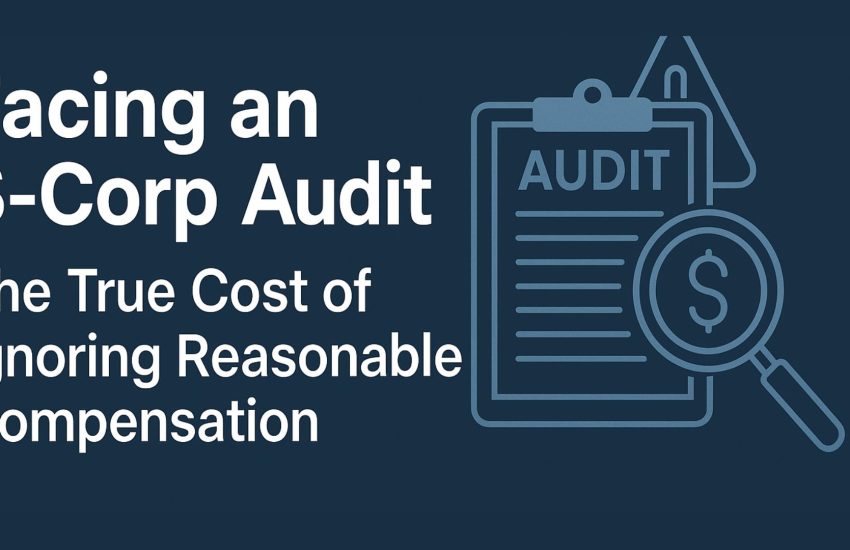LLC vs S Corp: Choose the Right Business Structure
LLC vs S Corp: Choose the Right Business Structure
Comparing LLC and S Corp
When starting a business or considering a change in your business structure, it’s essential to compare the LLC and S corporation. While both share certain features, they also have important differences. Understanding these distinctions is crucial before making a decision.
An LLC represents a legal business structure, while an S corporation is a tax classification applicable to certain small businesses. Both LLCs and corporations can opt for S-Corp taxation by submitting a form to the IRS. When launching a business, it’s essential to consider both legal and tax implications. Below are key factors to evaluate in this process.
What Is an LLC?
A limited liability company (LLC) is a legal business entity that shields the owner’s personal assets from the company’s liabilities. It functions as a separate entity, establishing a financial divide between the business and its owner. Owners of an LLC are referred to as members, and the structure can consist of either a single member or multiple members.
An LLC can be viewed as a blend of a partnership and a corporation. This structure is popular among small to medium-sized businesses and entrepreneurs due to its ease of use and adaptability. LLCs offer greater flexibility in management and profit distribution compared to corporations, while also providing liability protection that sole proprietorships or general partnerships lack.
Unlike partnerships and corporations, LLCs do not fall under a specific IRS tax category. Instead, they are generally taxed like sole proprietorships or partnerships, depending on the number of owners. An LLC may also choose to be taxed as an S corporation (if eligible) or a C corporation (C-Corp).
What Is an S-Corp?
An S corporation is a tax designation rather than a distinct business entity. Both LLCs and corporations can opt for S-Corp taxation. Unlike a traditional C corporation, an S-Corp does not incur corporate income tax; instead, profits are passed directly to the owners’ personal tax returns.
Not every business is eligible for S-Corp taxation. To qualify for this status:
- The business must be located in the U.S.
- The number of shareholders cannot exceed 100.
- Shareholders may include individuals and specific trusts or estates.
- Corporations, partnerships, or non-resident aliens cannot be shareholders.
- There can only be one class of stock.
S-Corp taxation can offer benefits for both corporations and LLCs. For corporations, it helps avoid double taxation of company profits at both corporate and shareholder levels. For LLCs, it allows owners to be treated as employees, potentially reducing tax liabilities.
It’s important to note that LLCs can operate under S-Corp taxation, meaning you can have the legal structure of an LLC while enjoying S-Corp tax benefits. Keep in mind the distinct factors to consider when structuring an LLC as an S-corp.
Similarities Between LLCs and S Corps
LLCs and S corps have several characteristics in common:
- Limited Liability Protection: Owners of both LLCs and S corporations are not personally liable for the business’s debts and liabilities. Instead, the LLC or S Corp itself is responsible for these obligations.
- Separate Legal Entities: Both LLCs and corporations are recognized as separate legal entities created through state filings. An S Corp can file IRS Form 2553, “Election as a Small Business Corporation,” to opt for S Corp taxation. However, they are governed by different state laws.
- Pass-Through Taxation: LLCs and S corporations are pass-through entities, meaning they do not pay income taxes at the business level. Instead, profits and losses are passed on to the owners’ personal tax returns. LLCs can choose not to be taxed as pass-through entities if the owners wish.
- State Compliance Requirements: Both types of entities must adhere to certain state regulations, such as appointing a registered agent, filing annual reports, paying fees, notifying the state of changes (like name or registered agent changes), and qualifying to operate in states outside of their formation state.
Key Differences Between LLCs and S Corps
Several significant differences exist between LLCs and S corps regarding ownership, management, and ongoing formalities.
Ownership
Ownership rules differ considerably:
- Number of Owners: LLCs can have an unlimited number of members, while S corporations are limited to 100 shareholders.
- Non-Citizen Participation: Non-U.S. citizens or residents can be members of an LLC, whereas S corps cannot have non-resident shareholders.
- Ownership Structure: S corporations cannot be owned by corporations, LLCs, partnerships, or many types of trusts. In contrast, LLCs have no such restrictions and can have subsidiaries.
- Stock Classes: S corporations cannot issue stock with different financial rights, whereas LLCs can offer various ownership structures.
Taxes
Typically, an LLC is taxed like a sole proprietorship or partnership, with owners viewed as self-employed individuals who report business income and expenses on their personal tax returns. Each owner’s share of profits is subject to federal, state, and self-employment taxes (covering Medicare and Social Security). As of now, the self-employment tax rate stands at 15.3%, applicable to all profits until reaching the maximum annual Social Security contribution (which was $168,800 in 2024).
Some LLC owners may save on self-employment taxes by electing S-Corp taxation, as this allows them to become company employees and draw regular payroll. While the salary is still subject to Medicare and Social Security taxes, any profits exceeding that salary are exempt.
However, the IRS closely monitors S-Corp owner salaries, requiring that they be reasonable, based on industry standards, geographic location, and individual experience. In other words, salaries cannot be unreasonably low to exploit tax advantages.
For instance, if you’re the sole owner of an LLC that generates a profit of $100,000, and a reasonable salary for similar work in your area is $70,000, under standard LLC taxation, you’ll owe self-employment taxes on the entire $100,000. Conversely, if your LLC is taxed as an S-Corp, you’d only incur payroll taxes on the $70,000 salary. The remaining $30,000 would still be subject to income tax, but not Medicare or Social Security taxes.
Historically, some S corporation owners have misused this tax benefit by classifying their income as zero salary and 100% distributions, thereby avoiding payroll taxes entirely. The IRS has become aware of this strategy and can impose significant penalties. Therefore, it’s advisable to consult with an accountant when deciding on your business’s tax classification and determining a “reasonable” salary. Additionally, establishing an S-Corp may introduce extra costs related to payroll and employee management.
Management
Management structures also vary:
- LLC Management: LLC owners can decide whether to manage the business themselves or appoint managers. If members manage the LLC, it functions similarly to a partnership. In the case of a single-member LLC, it resembles a sole proprietorship. If managed by appointed managers, it operates more like a corporation, with members uninvolved in daily operations.
- S Corp Management: S corporations have a board of directors and officers. The board oversees major corporate decisions while officers manage day-to-day operations. Shareholders do not engage in business management.
How to Structure an LLC as an S-Corp
To elect S-Corp taxation, file Form 2553, Election by a Small Business Corporation, with the IRS. This form should be submitted within 2 months and 15 days after the start of the tax year in which the election will take effect or any time during the preceding tax year. Consult the instructions for Form 2553 for detailed guidelines on deadlines and form completion.
When Should Your Company Consider Becoming an S-Corp?
An LLC owner might find it advantageous to elect S-Corp status to gain tax benefits while avoiding the formalities associated with corporate structures, such as appointing officers, holding board meetings, and maintaining meeting minutes.
It may be worthwhile to consider the S-Corp election once the business generates sufficient profit to justify the change in tax structure.
Disadvantages of an S-Corp
Choosing S-Corp status entails more complex tax withholdings, which can lead to increased accounting fees, particularly if there are no existing payroll needs. An S-Corp may also require separate tax filings. Therefore, transitioning an LLC to S-Corp status is typically only advantageous once the company achieves a certain income level, making the added costs feasible.
Find Clarity in Your Decision
If you’re uncertain about whether structuring an LLC as an S-Corp makes sense, consulting with an accountant can provide insights into the associated costs and income thresholds that validate the tax benefits of an S-corp.
Reach out to us at (402) 932-8815 or fill out a contact form here to discuss which option is best for your business.
Sincerely,
W. E. Stevens, PC



